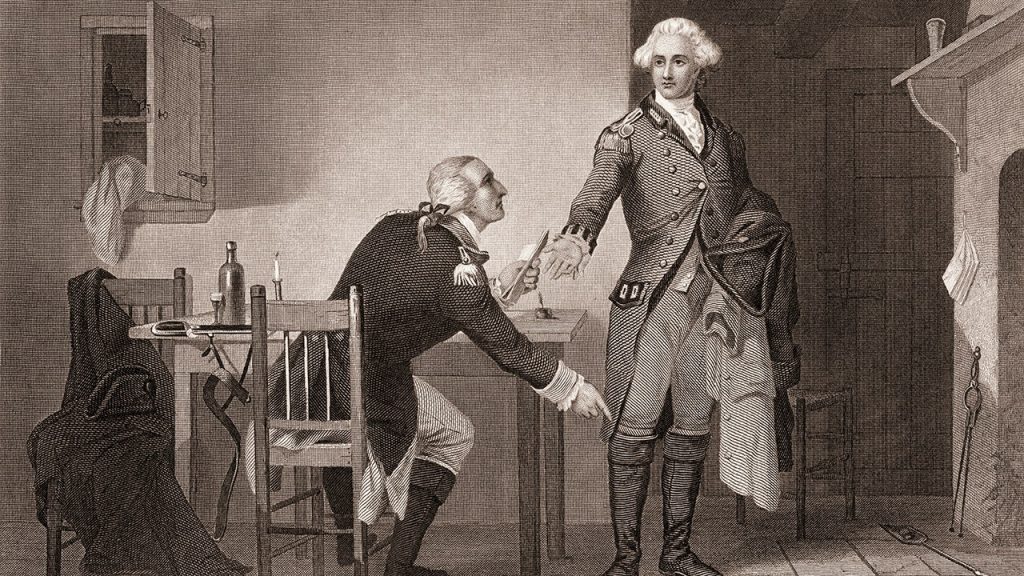On September 21, 1780, American combat officer Benedict Arnold met secretly with a British commander, Major John Andre, with a plot to trade the colonial stronghold at West Point for cash. The meeting took place at the Hudson River home of New York loyalist Joshua Hett Smith. General George Washington soon discovered the treachery, and Arnold escaped to British-controlled New York City, serving in the losing army for the remainder of the American Revolution. Arnold died in London in 1801, while Andre was captured and executed. The name Benedict Arnold remains synonymous with “traitor” in American English nearly 250 years later.
Historians have speculated about why Arnold became a traitor, with theories including greed, mounting debt, resentment of other officers, a hatred of the Continental Congress, and a desire for the colonies to remain under British rule. Arnold was reportedly offered 20,000 British pounds to hand over the American fortification at West Point, showing a covetousness for wealth over patriotism. Despite his turncoat actions, Arnold had served the cause of independence with distinction, rising to the rank of major general. He played a key role in early battles of the American Revolution, including the siege of Boston and the capture of Fort Ticonderoga.
Arnold was wounded in battles such as the Battle of Quebec and the Battle of Saratoga, where his actions helped secure a colonial victory that encouraged France to join the American cause. Washington trusted Arnold enough to give him command of West Point, a strategically important fortress along the Hudson River. Despite his heroism on the battlefield, Arnold felt underappreciated and overlooked by his fellow officers, leading to feelings of vanity and greed. His second wife, Margaret Shippen, a British spy and friend of Major Andre, facilitated the treasonous plot that ultimately led to Arnold’s downfall.
Despite Arnold’s military success, he felt that he did not receive the recognition he deserved, leading to growing resentment. Washington supported Arnold and considered him his “fighting general” until the defection, comparing the betrayal to that of Judas. Arnold’s actions shocked the nation, and despite receiving only a portion of the promised funds, he had acquired a significant amount of infamy for himself and his family. His legacy as a once-respected officer turned traitor remains a cautionary tale in American history.
Benjamin Franklin, in a letter to Marquis de Lafayette in 1781, discussed the betrayal of Arnold and compared him to Judas. Franklin criticized the act as a “miserable bargain,” highlighting the amount of infamy Arnold had brought upon himself and his family. The Arnold-Andre meeting was described as a disaster for both men, with Arnold’s lust for wealth leading to a tarnished reputation that would define his legacy. Despite his military prowess and early dedication to the cause of independence, Benedict Arnold’s betrayal remains one of the most infamous acts of treachery in American history.













